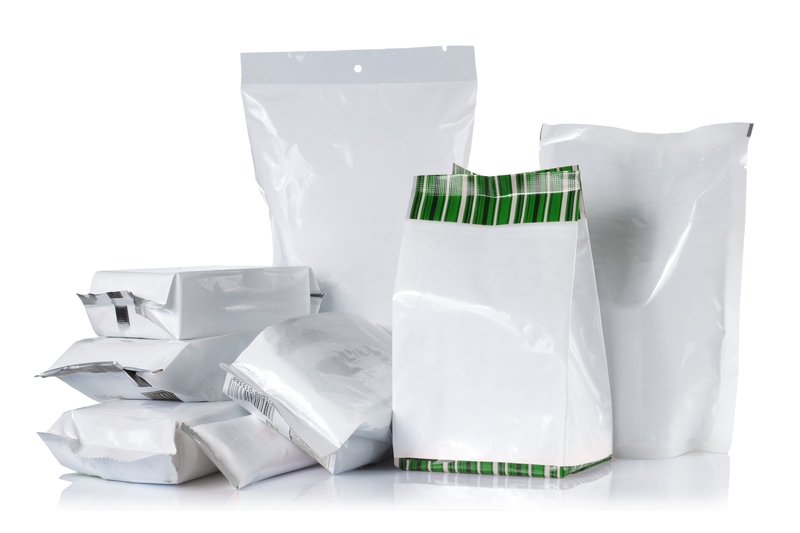Maximize Recycling Efforts at Home with These Essential Tips
Recycling at home is more important than ever in the fight against environmental pollution and resource depletion. But are you truly making the most of your recycling routine? This comprehensive guide will help you maximize your recycling efforts at home with actionable strategies, expert advice, and simple yet powerful tips. Whether you are just starting out or looking to improve your family's green habits, these essential tips will empower your household to contribute to a more sustainable planet.
Why Recycling at Home Matters
It's easy to underestimate the impact of our everyday actions. However, effective household recycling plays a crucial role in:
- Reducing landfill waste
- Conserving natural resources
- Saving energy and lowering greenhouse gas emissions
- Supporting the circular economy
- Preserving the environment for future generations
By maximizing your recycling at home, you set a positive example for your family and community, helping to build a greener, healthier world.

Understanding the Basics of Home Recycling
Know What Can and Cannot Be Recycled
Knowing what items are recyclable in your area is the first step to effective recycling. Each municipality has its own rules, so check your local guidelines for correct information. Typically, items that are widely accepted for recycling include:
- Paper and cardboard (clean and dry)
- Plastic bottles and containers (rinsed, with lids removed)
- Metal cans (aluminum and steel)
- Glass bottles and jars (cleaned and dry)
Conversely, these items often cannot be recycled in standard curbside bins:
- Plastic bags and film plastic
- Styrofoam
- Food or greasy containers (like pizza boxes with cheese stuck on)
- Hazardous waste materials (batteries, electronics, chemicals)
When in doubt, check before you chuck() - contaminating a recycling load with non-recyclables can cause the whole batch to be sent to landfill.
Take Time to Clean and Sort
One of the most effective home recycling tips is to rinse and dry containers before recycling. Food residue can spoil a batch of recyclables and lead to increased waste. Sort your recyclables according to local rules: some areas require sorting by material, while others offer single stream recycling. Proper sorting and cleaning ensures that the materials actually get recycled rather than being discarded.
Essential Tips to Maximize Household Recycling
1. Create a Dedicated Recycling Station
Designate a visible and convenient area in your home for recycling. Use labeled bins for different materials (paper, plastic, glass, metal) to encourage every family member to participate fully. Place the recycling station near your kitchen or high-traffic area for easy access. Clear labeling and accessible bins make it simple to maximize recycling at home on a daily basis.
2. Lessen Contamination with Smart Storage
Store your recyclables in a way that prevents cross-contamination. For example:
- Use separate bags or bins for each material type
- Store glass jars and bottles apart from paper to avoid accidental breakage and spoilage
- Refrain from bagging recyclables in plastic bags (most curbside programs do not accept them)
This small habit can drastically improve your home's recycling efficiency.
3. Flatten Cardboard and Crush Bottles
Maximize bin space by flattening cardboard boxes and crushing plastic bottles. Not only does this allow you to fit more in your recycling bin, but it also reduces transportation emissions and makes materials easier to process at recycling facilities.
4. Compost Food Scraps and Yard Waste
Did you know that up to 30% of household waste is compostable? Divert organic material such as vegetable peels, coffee grounds, and yard clippings from landfill by starting a home compost pile or using a kitchen compost bin. This reduces waste and enriches your garden soil - a win-win approach for eco-friendly living.
5. Reuse Before You Recycle
Before tossing something in the recycling bin, ask yourself if it can be reused first. Reusing items at home reduces waste and extends the life of products. Some ideas include:
- Repurposing glass jars as storage containers
- Using old t-shirts as cleaning rags
- Turning cardboard boxes into organizers
- Refilling water bottles instead of buying new ones
6. Purchase Recyclable and Minimal Packaging
Support recycling efforts at home by buying products in recyclable packaging or with minimal wrapping. Look for labels such as 100% recyclable, made from recycled materials, or compostable. When shopping, opt for bulk items or products with eco-friendly packaging to reduce overall waste.
7. Educate Your Family and Kids
Make recycling a family affair by educating everyone in the household about what can and cannot be recycled. Use visual guides, fun charts, and games to teach children. Creating a culture of sustainability helps turn recycling into a life-long habit.
8. Properly Dispose of Hazardous Materials
Never throw batteries, electronics, unwanted medication, or chemicals into the regular trash or recycling. Many communities offer special collection days for household hazardous waste or have drop-off centers. Disposing of hazardous items properly helps keep your family and the environment safe.
9. Get Involved in Local Recycling Programs
Stay updated about local recycling initiatives, collection events, and program changes. Many communities offer recycling resources such as:
- Electronic waste drop-off
- Mulch and compost giveaways
- Book or clothing donation drives
Participating in these activities maximizes your household recycling impact and connects you to a network of like-minded eco-conscious people.
10. Rethink Single-Use Items
Single-use plastics are among the most challenging materials for recycling programs. Replace them with reusable alternatives whenever possible:
- Reusable shopping bags instead of plastic bags
- Stainless steel or glass water bottles
- Beeswax wraps instead of plastic cling film
- Washable cloth napkins and towels
By minimizing single-use products, you lighten your recycling load and reduce overall waste generation.
Common Mistakes to Avoid in Home Recycling
Wishcycling
Wishcycling is the practice of throwing items into the recycling bin in the hope that they are recyclable, even if they are not accepted by your local program. This can create contamination, raise processing costs, and send entire batches to landfill. Always double-check your local guidelines and avoid wishcycling.
Forgetting to Empty and Clean Containers
Recyclables with food or liquid residue often end up in the trash. Make it a habit to rinse out cans, bottles, and jars before placing them in the bin to ensure they are recycled properly.
Bagging Your Recyclables
Most curbside recycling programs do not accept recyclables in plastic bags, as the bags can clog sorting machinery and are difficult to recycle themselves. Always place items loose in the bin unless your community states otherwise.
Neglecting to Recycle Uncommon Materials
Electronic devices, old batteries, light bulbs, and plastic film cannot go in curbside bins, but they can still be recycled at dedicated drop-off points. Research options for special recycling programs in your area to ensure these materials are responsibly handled.
Advanced Strategies for Maximizing Recycling
Educate Yourself About Recycling Symbols
Not all plastics are created equal. Learn the meanings of recycling symbols--especially the plastic resin codes (#1 through #7)--to identify which plastics your local facility accepts. PP (#5), HDPE (#2), and PET (#1) are widely recycled, whereas others may not be.
Track Your Progress
Set recycling goals for your household and monitor how much you recycle each week. Tracking your progress motivates everyone to stay on track and reveals opportunities for improvement.
Stay Informed About Recycling Changes
Markets for recyclable materials change over time, so local rules may be updated to reflect what's currently feasible. Stay informed by subscribing to your municipality's newsletter or following their social media channels for up-to-date information.
Advocate for Better Recycling Policies
If you're passionate about recycling, consider getting involved with local groups or campaigns aimed at improving recycling infrastructure and education. Community engagement can help boost recycling rates citywide.

The Environmental Benefits of Effective Home Recycling
By maximizing recycling efforts at home, you help to:
- Conserve natural resources such as water, minerals, and trees
- Reduce greenhouse gas emissions by lessening the demand for new materials
- Protect ecosystems and wildlife by minimizing pollution
- Support jobs and innovation in the recycling industry
The collective impact of millions of households making responsible recycling choices is profound. You are truly making a difference with each item you recycle correctly.
Conclusion: Every Effort Counts in Home Recycling
Recycling at home may seem simple, but it has a powerful ripple effect. By following these essential tips, you can maximize your recycling efforts, lead your family towards a greener lifestyle, and help protect the planet. Start implementing these strategies today and become a champion for environmental sustainability--right from your own home.
Ready to take your home recycling to the next level?
Share these tips with friends and neighbors, and keep learning about sustainable living to continuously improve your impact. Remember: Every bottle, can, and piece of paper recycled is a step closer to a cleaner world.